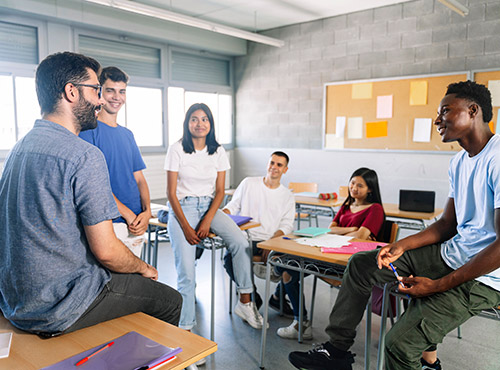
Who: Carol Dweck, the psychologist and lead researcher who developed the concept of growth mindset, and you.
What: Growth Mindset
|
Fixed Mindset
|
Growth Mindset
|
Why: A classroom with a growth mindset is one that values growth and effort, as well as the process of learning. It develops learners who embrace challenge, love learning, and demonstrate resiliency; while increasing academic achievement and reducing the achievement gap.
How: Think about our own thoughts- do we believe all of our students are capable of growing, learning, and making incremental progress? Do we believe we are capable of growing, learning, and improving our instructional practice? A growth-minded classroom begins with us.
When: Now, tomorrow, each day
Where: For more information, watch Carol Dweck’s 10-minute TED talk.
Additional Tips:
• Share a book or video using developmentally appropriate language to teach students that brains are muscles that are constantly making new connections. With challenges, effort, focus, and learning from mistakes we can achieve great things.
• In Carol Dweck’s words, “praise wisely”. Praise the process of learning- praise effort, strategies, focus, perseverance, and improvement. Don’t praise how smart or “good” a student is; this can actually negatively impact achievement.
• Model a growth mindset with our words and actions. Use wording that promotes effort and includes students in the process of problem-solving.
• Help students set achievable mini-goals. Reflect on their progress, and connect it to their effort, focus, and perseverance.
• Have students write a letter to a younger student offering words of encouragement. Have them teach that hard work and effort will help them to learn more in school. Have them include an example of hard work and resulting success from their own life. (Aronson, 2002)
Research connecting the growth mindset with real academic outcomes is deep and encouraging. What’s more, there are small, practical ways to incorporate the growth mindset into our daily pedagogical practice. It really does start with us. When we view learning as an ongoing process- for both ourselves and our students- resulting from effort and perseverance and allow that belief to guide our actions, this becomes a self-fulfilling prophecy. We witness the success and achievement we expect.
